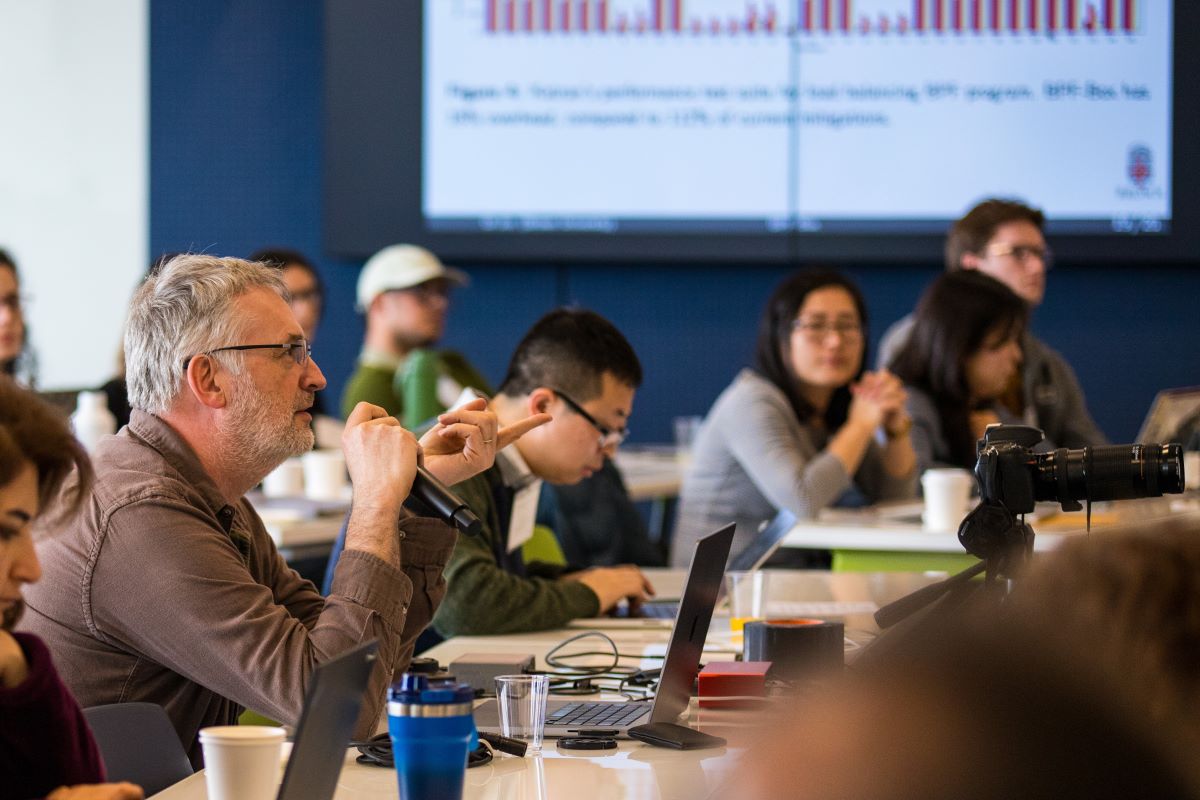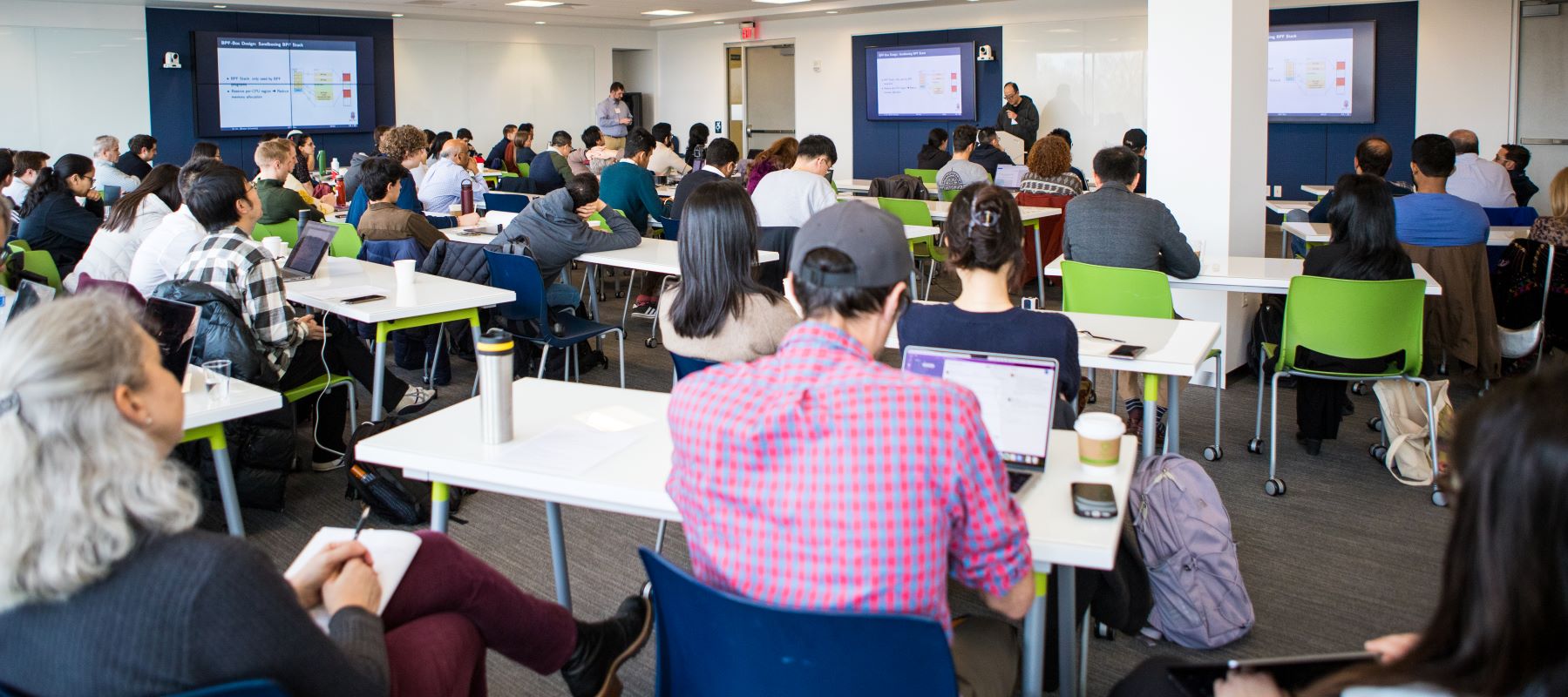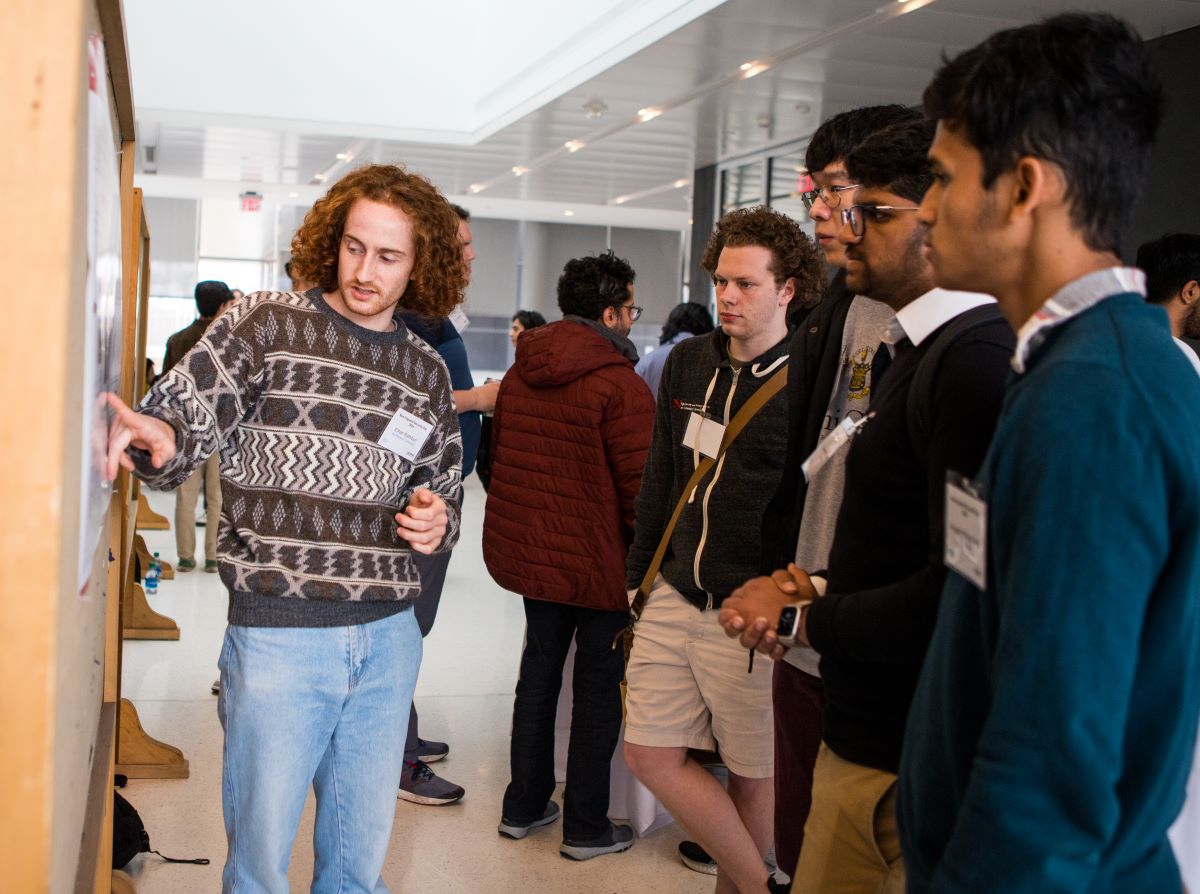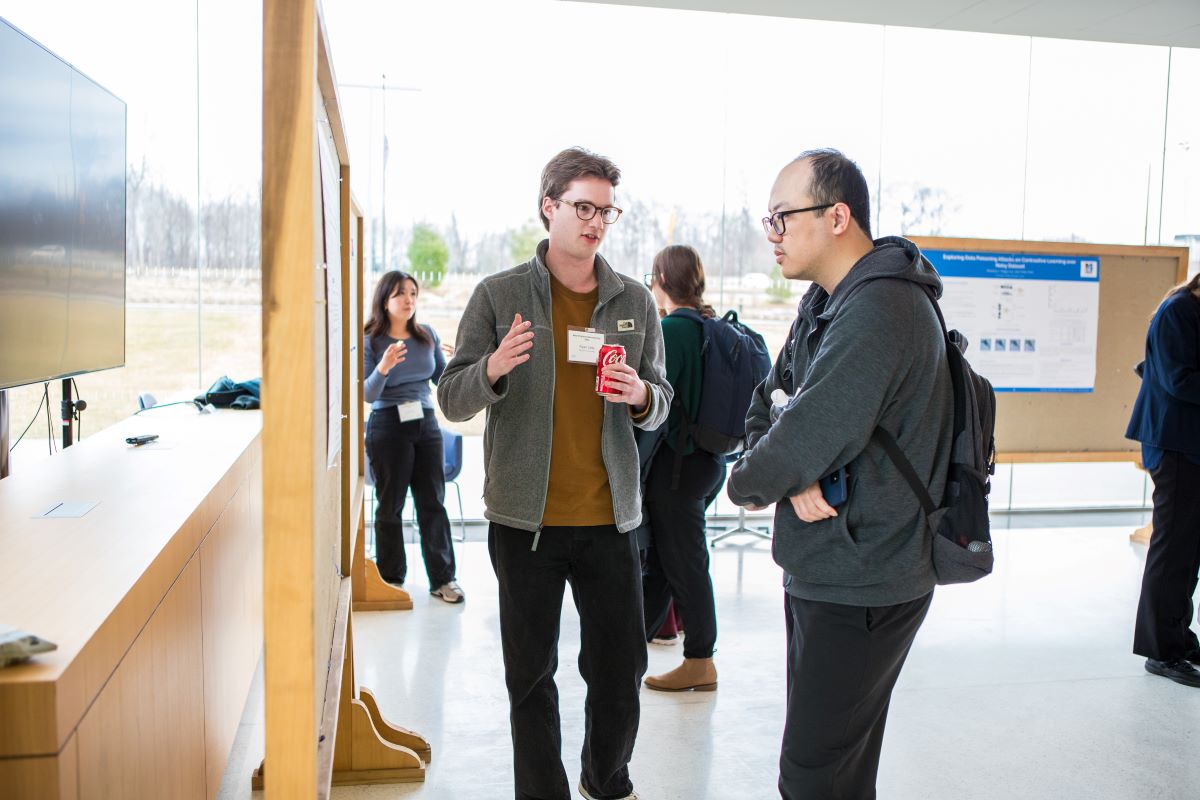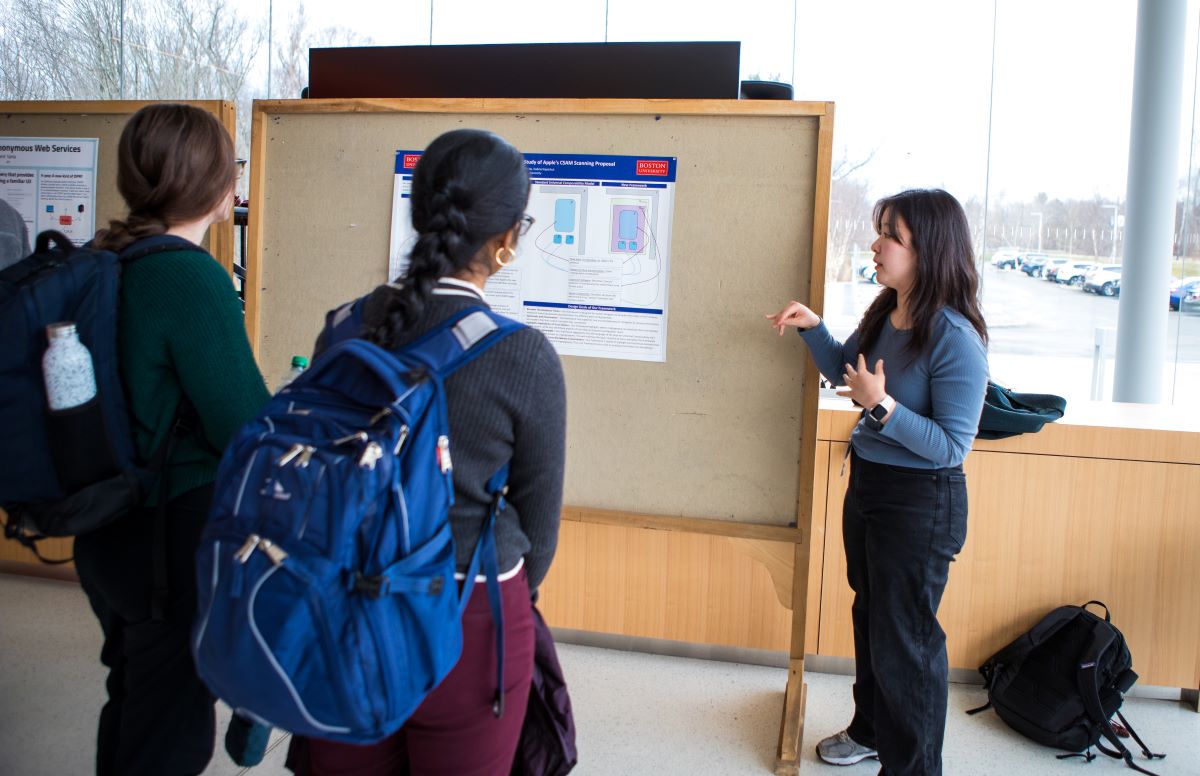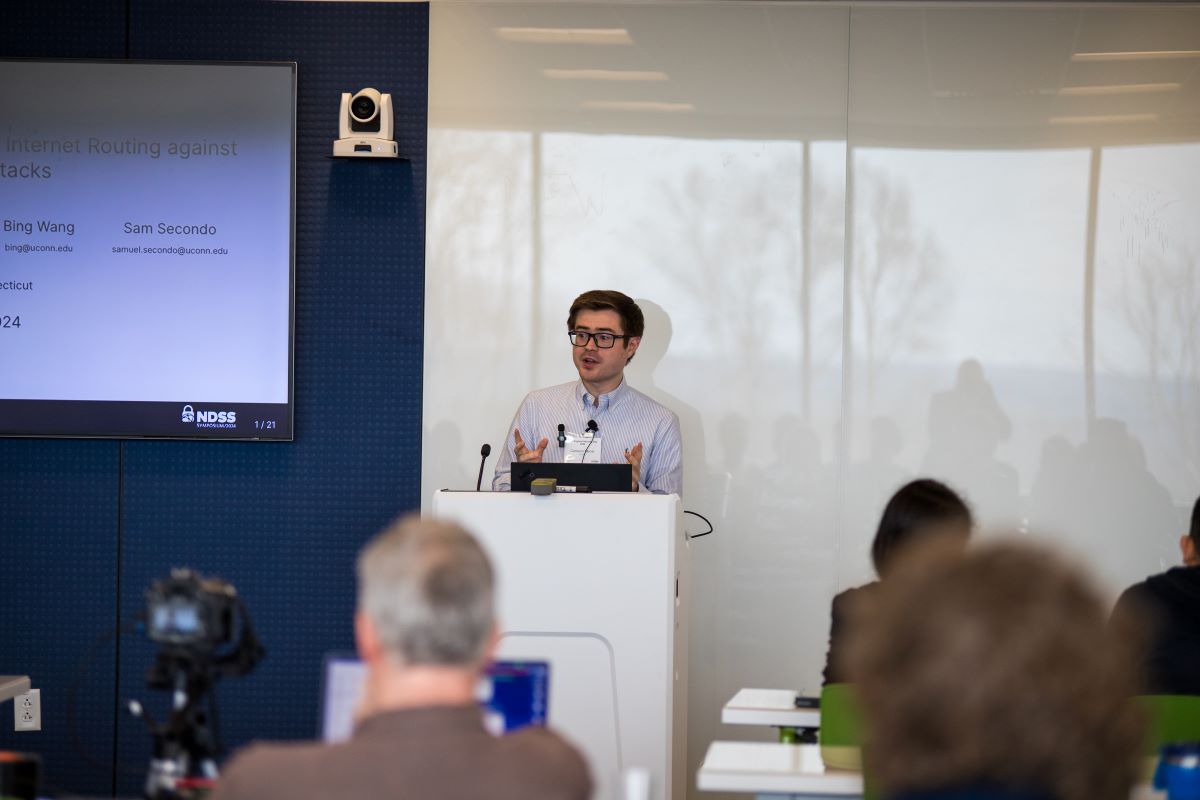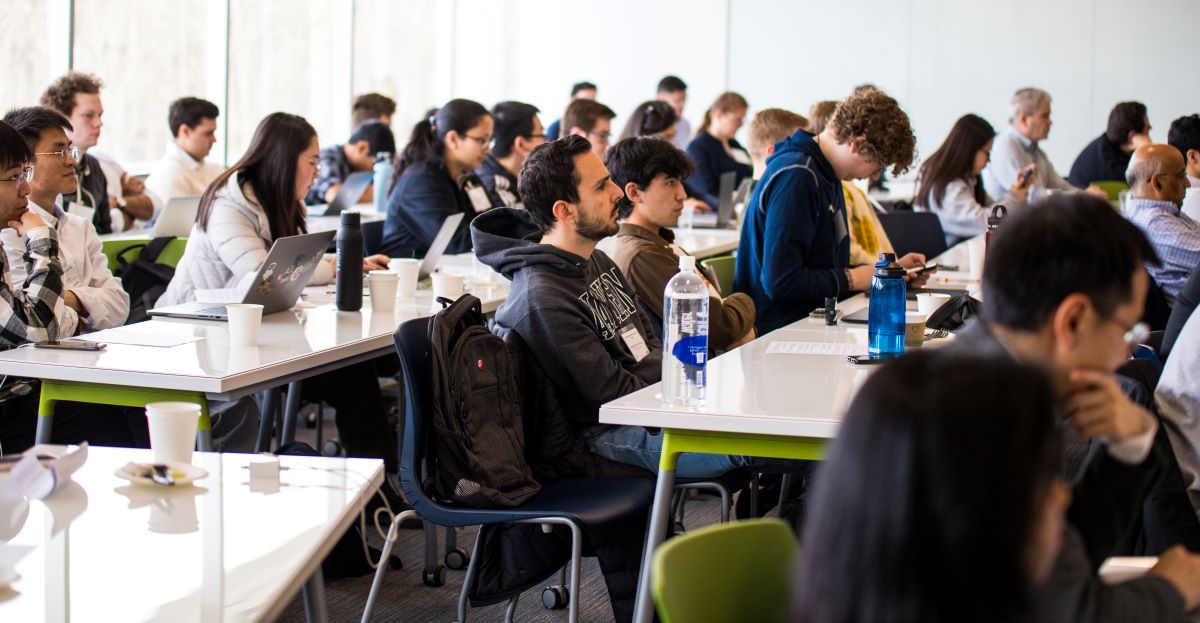Technology Innovation
Exploring the Future of Digital Twins in Manufacturing
 On November 12–13, 2024, UConn’s Pratt & Whitney Institute for Advanced Systems Engineering (PW-IASE) brought together researchers, industry leaders, and practitioners for the Workshop on Digital Twins for Manufacturing, held at the Innovation Partnership Building at UConn Tech Park. Hosted in collaboration with the U.S. Department of Energy (DoE) and the National Science Foundation (NSF), the event served as a global platform to explore the transformative potential of Digital Twin (DT) technologies in modern manufacturing.
On November 12–13, 2024, UConn’s Pratt & Whitney Institute for Advanced Systems Engineering (PW-IASE) brought together researchers, industry leaders, and practitioners for the Workshop on Digital Twins for Manufacturing, held at the Innovation Partnership Building at UConn Tech Park. Hosted in collaboration with the U.S. Department of Energy (DoE) and the National Science Foundation (NSF), the event served as a global platform to explore the transformative potential of Digital Twin (DT) technologies in modern manufacturing.
Participants engaged in a dynamic exchange of ideas through keynote presentations, interactive panels, and collaborative working sessions. The workshop’s agenda was designed to address pressing challenges and opportunities in manufacturing, with a focus on the development and application of DTs—virtual models that mirror physical systems to optimize products, processes, and production throughout their lifecycle.
Digital Twin technologies are revolutionizing how manufacturers approach design, production, and maintenance. By enabling real-time data integration and predictive analytics, DTs support informed decision-making and proactive solutions, critical for industries navigating the complexities of modern supply chains and innovation demands. “As the manufacturing sector evolves, DTs provide critical tools for innovation, enabling real-time data integration, predictive analytics, and proactive decision-making,” noted Dr. George Bollas, associate dean of Research for UConn’s College of Engineering and director of PW-IASE.
The workshop tackled key themes, such as improving system efficiency, enhancing resilience, and leveraging DTs for sustainability in manufacturing. Notable speakers and panelists represented a wide array of expertise, from academic research to practical applications in aerospace, defense, and energy sectors. Participants worked toward actionable outcomes, including drafting a strategic roadmap to guide the future development of DT technologies and fostering collaborations across academia, industry, and government.
By hosting this event, UConn reaffirmed its position as a leader in advancing cutting-edge manufacturing technologies. The workshop highlighted Connecticut’s rich industrial heritage, particularly in aerospace, defense, and shipbuilding, while showcasing how innovations like DTs will shape the future of these sectors.
The Workshop on Digital Twins for Manufacturing not only provided a forum for sharing knowledge but also underscored the importance of interdisciplinary collaboration in driving technological progress. As digital twins continue to mature, they hold the promise of transforming manufacturing into a more agile, efficient, and sustainable industry.
Fostering Innovation at UConn: The Nursing and Engineering Innovation Center
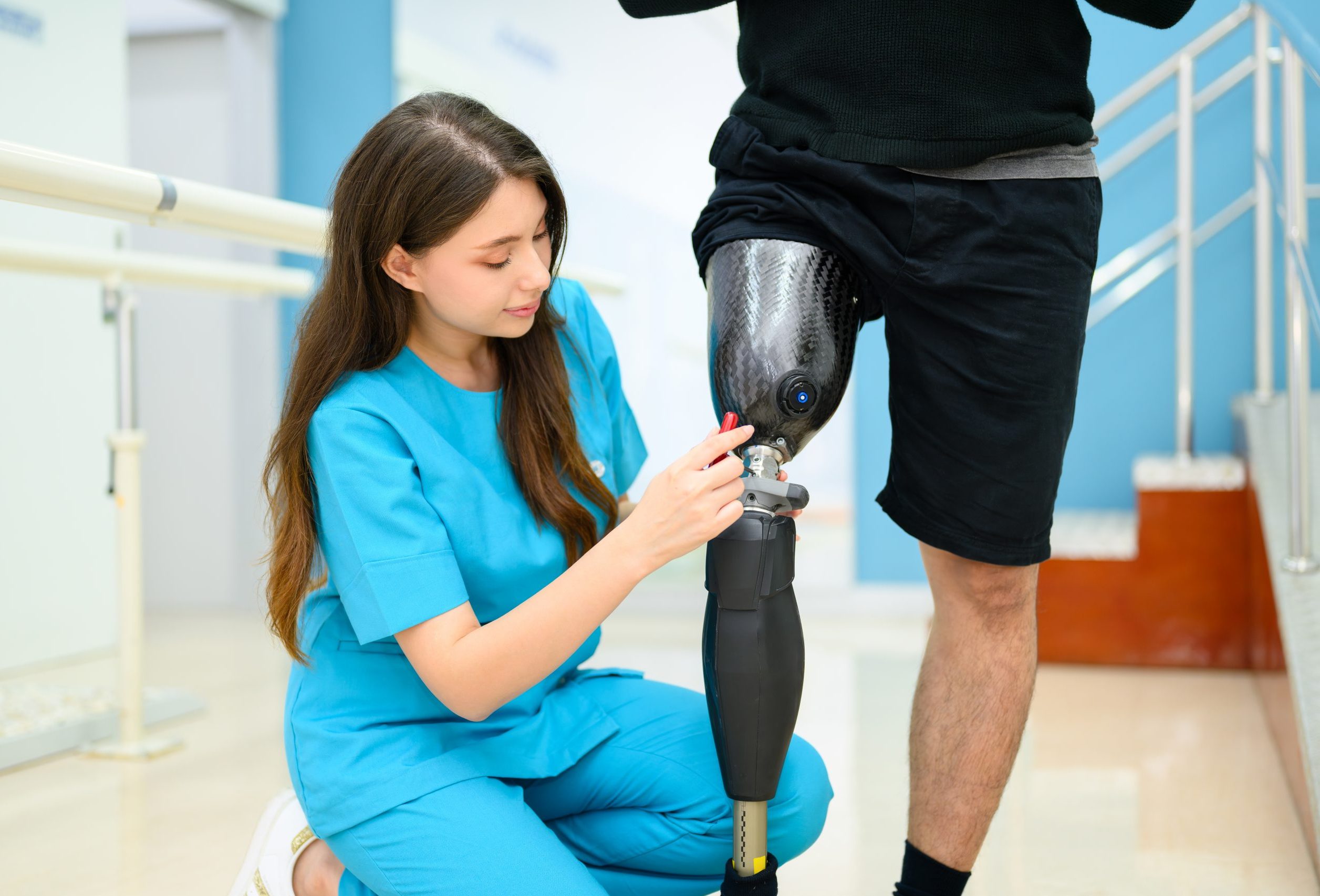 The Nursing and Engineering Innovation Center at UConn Tech Park is spearheading transformative healthcare solutions through interdisciplinary collaboration. By uniting the expertise of the School of Nursing and the College of Engineering, the center aims to drive the creation and commercialization of evidence-based healthcare technologies.
The Nursing and Engineering Innovation Center at UConn Tech Park is spearheading transformative healthcare solutions through interdisciplinary collaboration. By uniting the expertise of the School of Nursing and the College of Engineering, the center aims to drive the creation and commercialization of evidence-based healthcare technologies.
One of the center’s notable initiatives was showcased during the Spring 2024 Technology Innovation and Entrepreneurship (TIE) course, led by co-Director Dr. Leila Daneshmandi and Professor Sam Nanayakkara. For the first time, the TIE courses included nursing students, emphasizing the center’s mission to integrate diverse fields for innovative outcomes. This collaboration resulted in student venture presentations including Green Grid Farms, Puppy Palace, Transplant Rescue, KLAD, eKardia, and Alevia Pharma OraSpray.
The final pitch day on April 22 highlighted these projects, judged by a panel of faculty, staff, and students professionals, including Engineering Associate Dean Leslie Shor and Nursing Visiting Professor and Nursing & Engineering Innovation Center co-director Tiffany Kelley. Dr. Daneshmandi commended the students for their dedication in building technology-enabled ventures aimed at driving significant change.
The event also featured presentations from young inventors in the K-12 space, courtesy of the Connecticut Invention Convention, and showcased top student ventures like ParticleN, Genesist, and Toribio Labs Zemi Platforms. These presentations underscored the continuous impact of the TIE courses and the broader entrepreneurial initiatives at UConn.
The Nursing and Engineering Innovation Center aims to foster healthcare, workforce, and economic development through research, education, community engagement, and technology transfer. By combining clinical nursing knowledge with engineering expertise, the center is poised to create healthcare technologies that address clinical unmet needs and improve healthcare quality. The involvement of registered nurses, the largest group of healthcare professionals, is pivotal in developing and evaluating new technologies.
The Nursing and Engineering Innovation Center, led by Tiffany Kelley and Leila Daneshmandi, exemplifies UConn’s dedication to interdisciplinary collaboration and innovation. For more information about the center’s initiatives visit the Nursing and Engineering Innovation Center website. To learn more about the TIE courses, visit the Entrepreneurship Hub (eHUB) website.
UConn and Yale Drive Quantum Innovation with State Support
The Quantum Initiative at UConn, in partnership with Yale University, is a dynamic and collaborative effort dedicated to advancing quantum science through interdisciplinary collaboration. By fostering a community through joint seminars, workshops, and outreach events, QuantumCT is working towards establishing a premier quantum center in Connecticut.
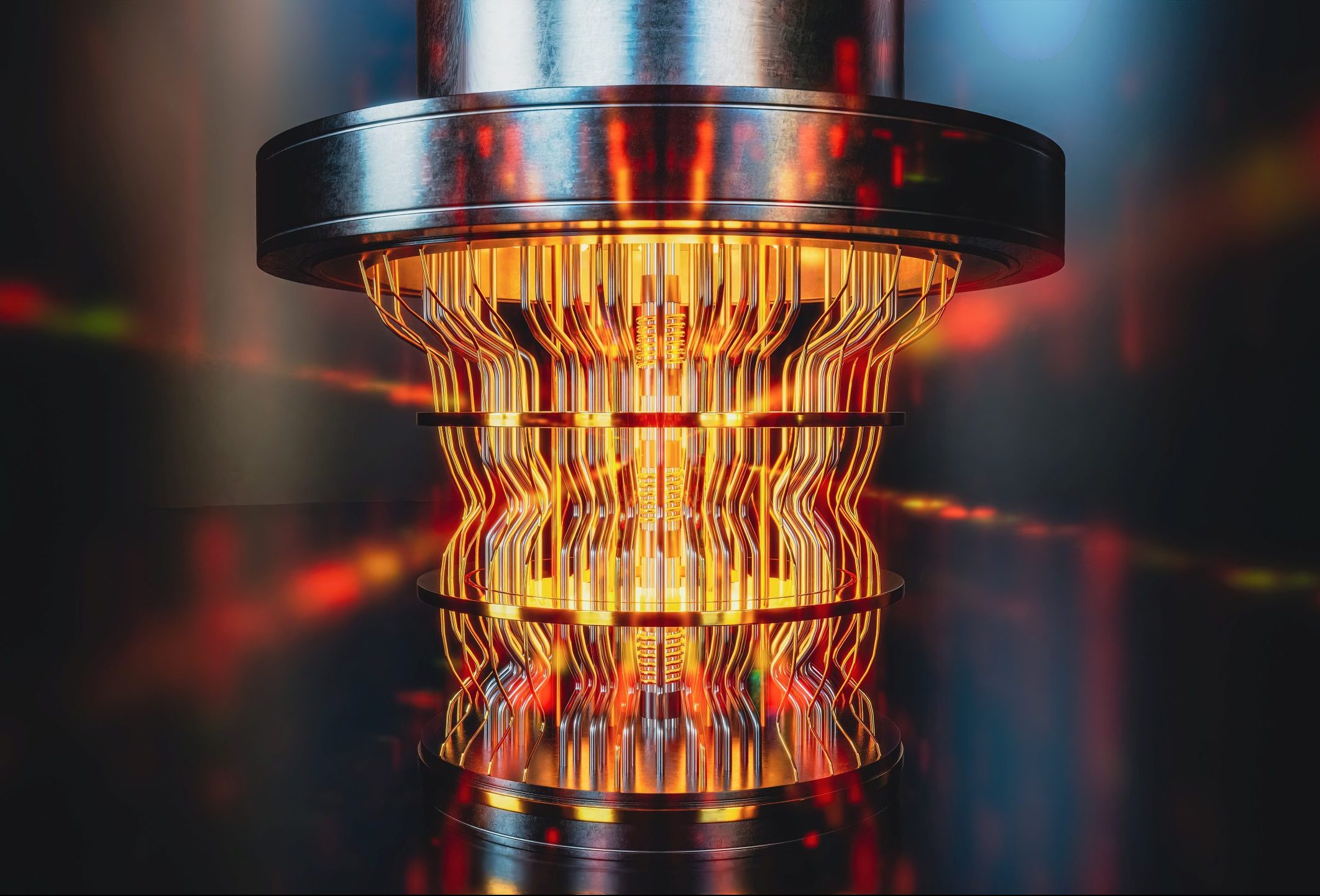
Program Highlights and Recent Developments
QuantumCT has been making significant strides, particularly with the recent announcement from the Governor of Connecticut. In a bold move to position Connecticut as a leader in innovation, the Governor announced a $100 million investment aimed at bolstering research and development in cutting-edge technologies, including quantum science. This substantial investment underscores the state’s commitment to fostering advancements in this transformative field.
A key development for QuantumCT is the introduction of Quantum Seed Grants, which are funding innovative solutions to real-world problems. Nine Connecticut-based research groups have received one-year seed grants to tackle challenge problems issued by corporate partners. These projects aim to develop algorithms for simulating molecular drug actions, invent accurate sensors for extreme environments, and address other critical needs in industries like aerospace and biotech.
Yale brings world-renowned expertise in quantum science and technology to the table, complementing UConn’s strengths and facilitating a robust exchange of ideas and resources. This partnership is vital in addressing the complex challenges in quantum research and development. Yale’s Vice Provost for Research, Michael Crair, highlights the importance of these collaborations, stating, “These grants are fertilizing creative, potentially transformative projects in quantum science and technology across several key industries, all of which are central to Connecticut’s present and future economy.”
QuantumCT has been active in hosting events that bring together leading minds in quantum science. For instance, Josiah Sinclair from MIT-Harvard CUA presented a colloquium at UConn on a new platform for quantum science in early 2024, featuring programmable arrays of single atoms. Events like this highlight the initiative’s dedication to cutting-edge research and collaboration.
Looking ahead, QuantumCT aims to position Connecticut as a global hub for quantum education, job training, and research innovation. The collaborative efforts of UConn, Yale, and industry partners are paving the way for a faster pace of quantum innovation. Pamir Alpay, UConn’s Vice President for Research, Innovation, and Entrepreneurship, notes, “These seed grants will fuel not only quantum discovery but also career opportunities in a high-demand STEM field.”
With the recent $100 million investment from the state, QuantumCT is well on its way to driving forward the next wave of technological advancements, transforming industries, and creating new economic opportunities. For more information about upcoming events and the latest research from QuantumCT, visit QuantumCT.org.
Registration is Open! Sustainable Clean Energy Summit 2024 – September 23rd
New England Security Day 2024
On March 15th, the Innovation Partnership Building hosted New England Security Day 2024 (NESD), featuring cutting-edge cybersecurity research by experts from academic and professional backgrounds. Participants included industry professionals and academic institutions such as Boston University, Brown, Harvard, UMass, MIT, Northeastern, WPI, and Yale. Attendees had the opportunity to learn about the latest advancements in technology and network for potential collaboration and employment prospects. The conference welcomed a diverse audience of professionals, academics, and graduate and undergraduate students interested in cybersecurity, regardless of their familiarity with advanced concepts like fuzzers, machine learning methods for intrusion detection, or efficient post-quantum cryptography.
Visit the NESD 2024 web page for additional information and to view the NESD 2024 video, complete event program and additional photos.
New Regional Centers Focus on Electrical Grid Cybersecurity
UConn Leading Federally Backed Regional Initiative to Defend Electric Grid from Cyberattack
UConn to Assist Connecticut Farmers with Innovative Projects
Ripple Effect: Reverse Osmosis Technology – Implications for Reshaping the Clean Water Landscape

Amidst the global freshwater crisis, desalination emerges as crucial for meeting the escalating demand for potable and industrial water. Particularly in water-scarce regions, reliance on desalinated water for drinking, cooking and washing continues to grow.
However, reverse osmosis (RO) technologies that are widely employed by the desalination industry are costly and energy-intensive due to inherent characteristics of the RO membranes currently used in the desalination process. To address these challenges, research efforts are currently underway to develop advanced, more durable RO membranes capable of improving energy-efficiency and reducing cost while withstanding the rigors of the desalination process.
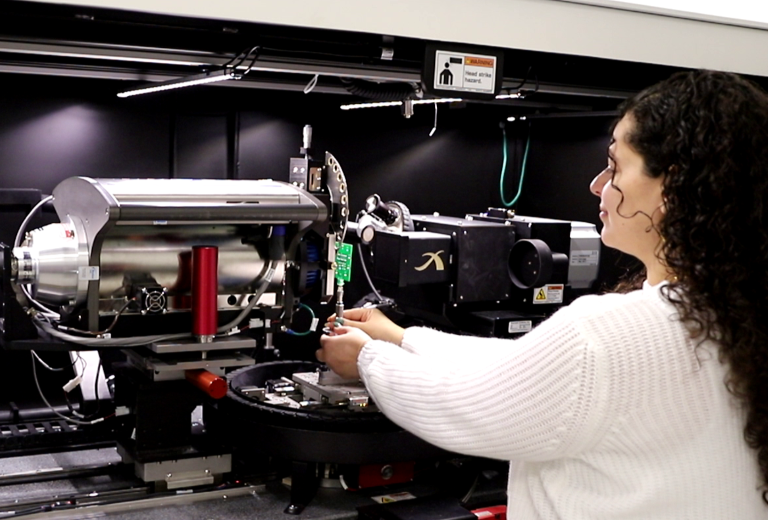 In the recent publication “Characterization of Reverse Osmosis Membranes Under Compaction Utilizing 3D X-ray and 3D FIB Correlative Microscopy”, UConn PhD Graduate Assistant Yara Suleiman and coauthors expand upon their prior research that introduced a novel process for evaluating the performance of RO membranes in water treatment facilities. The innovative approach, utilizing state-of-the-art 3D X-ray and 3D FIB correlative microscopy, offers promising prospects for shaping advancement in membrane technologies that can drive more efficient, less costly desalination, with broader implications for sustainable solutions to the global freshwater crisis.
In the recent publication “Characterization of Reverse Osmosis Membranes Under Compaction Utilizing 3D X-ray and 3D FIB Correlative Microscopy”, UConn PhD Graduate Assistant Yara Suleiman and coauthors expand upon their prior research that introduced a novel process for evaluating the performance of RO membranes in water treatment facilities. The innovative approach, utilizing state-of-the-art 3D X-ray and 3D FIB correlative microscopy, offers promising prospects for shaping advancement in membrane technologies that can drive more efficient, less costly desalination, with broader implications for sustainable solutions to the global freshwater crisis.
Suleiman is a PhD Graduate Assistant at the Reverse Engineering, Fabrication, Inspection and Non-Destructive Analysis (REFINE) lab at the IPB | UConn Tech Park. The article is coauthored with REFINE Center Director Sina Shahbazmohamadi and UCLA’s Professor Eric Hoek and postdoctoral research fellow Jishan Wu.
Citation: Yara Suleiman, Jishan Wu, Eric M V Hoek, Sina Shahbazmohamadi, Characterization of Reverse Osmosis Membranes Under Compaction Utilizing 3D X-ray and 3D FIB Correlative Microscopy, Microscopy and Microanalysis, Volume 29, Issue Supplement_1, 1 August 2023, Pages 144-145, https://doi.org/10.1093/micmic/ozad067.065
